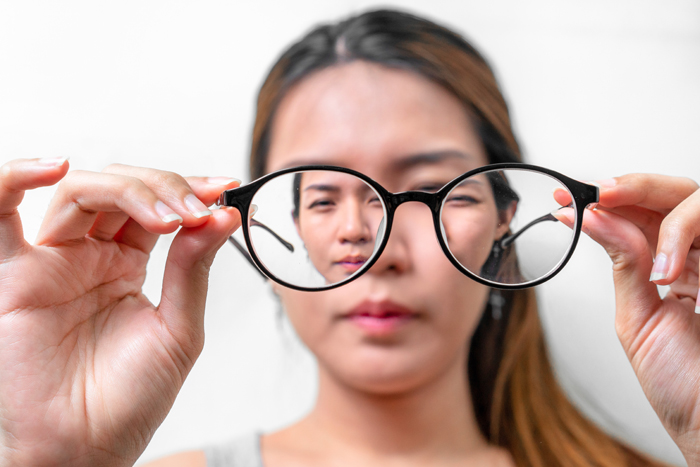Squint Eye Treatment in Kondapur, Hyderabad
Squint is an eye condition. It refers to an eye disorder wherein the eyes are aligned in different directions. One of the eyes may be pointed upwards, downwards, inward, or outward, while the other eye is focused at a fixed spot. The condition can stay permanently or it can happen at certain time intervals or periodically.
This means that the eye which displays the movement, the turning in that eye may be constant or it can come and go. Mostly, the condition of squint is found in children, although adults may also develop the condition. Squint can also be referred to by different names such as strabismus, crossed eyes, wandering eyes, cockeye, wall-eyed, and deviating eye.

What are the Types of Squint?
Squint may be of different types depending on its cause and the way the eye turns. The condition of squint can be of four types depending on the position of the eye:
- Hypertropia: wherein the eye turns upwards
- Hypotropia: wherein the eye turns downwards
- Esotropia: wherein the eye turns inwards
- Exotropia: wherein the eye turns outwards
The two other types of squint are:
- Convergent Squint: this refers to the condition wherein the eyes are misaligned. Both eyes point in different directions.
- Paralytic Squint: this refers to the inability of the eye muscles to move the eye because of muscle paralysis.
What are the Symptoms of Squint?
The main sign of squint can be stated as the improper alignment of eyes. Although, there may be other signs and symptoms as well, such as:
- When the misalignment in the eyes is large and obvious, your brain makes no efforts to straighten the eye and it does not show any symptoms.
- Headaches and eyestrain when the misalignment in the eyes is less.
- Feeling of fatigue while reading.
- Jittery or unstable vision.
- Loss of vision in the misaligned eye, a condition known as amblyopia.
Infants or newborns may show the above-stated symptoms, especially if they are tired. This does not necessarily mean that they have a squint. Consult a doctor for further clarification.
Request an appointment at Apollo Spectra Hospitals, Kondapur
Call 1860-500-2244 to book an appointment
What are the Causes of Squint?
There is a possibility that a person may be born with the condition of squint. The reason may be hereditary or a genetic link. Other reasons that may lead to the condition of squint can be:
- Long-sightedness, also known as hypermetropia
- Due to an injury on the cranial nerve
- Short-sightedness, also known as myopia
- When the cornea is not curved properly, a condition known as astigmatism
- When too much cerebrospinal fluid builds up in and around the brain
- Viral infections, such as measles, can also lead to the condition of squint
There are six muscles around your eyes that are responsible for coordinating the movements of your eye, called extraocular muscles. For both of your eyes to be lined up and focused on a single point, all the muscles in both eyes have to work together. When there is a disturbance in either of the six muscles, this can lead to the problem of squint.
How can Squint be Treated?
It is recommended to get the treatment as soon as possible to avoid other related complications such as lazy eyes. The earlier the treatment is done, the more effective it is likely to be. Some of the treatment options of squint at Apollo Kondapur are:
- Glasses: glasses can be used in case of long-sightedness.
- Eye patch: eye patches are placed on the good eye to push the weaker eye to function better.
- Botulinum toxin injection or Botox: this is injected into a muscle on the surface of the eye. This is recommended if no underlying cause can be identified and if signs and symptoms appear suddenly.
- Eye drops and eye exercises can also be prescribed.
It is believed that squinting is a permanent condition but it can be treated and corrected at any age.
There are certain exercises like pencil push-ups, barrel cards, and the like that can be practised but a professional consultation is recommended along with these exercises.
Squint is not always regarded as a cosmetic problem. It can be related to decreased vision, loss of binocular vision, or loss of depth perception.
Symptoms
Our Top Specialities
NOTICE BOARD
CONTACT US
CONTACT US
 Book Appointment
Book Appointment


.svg)
.svg)
.svg)
.svg)








